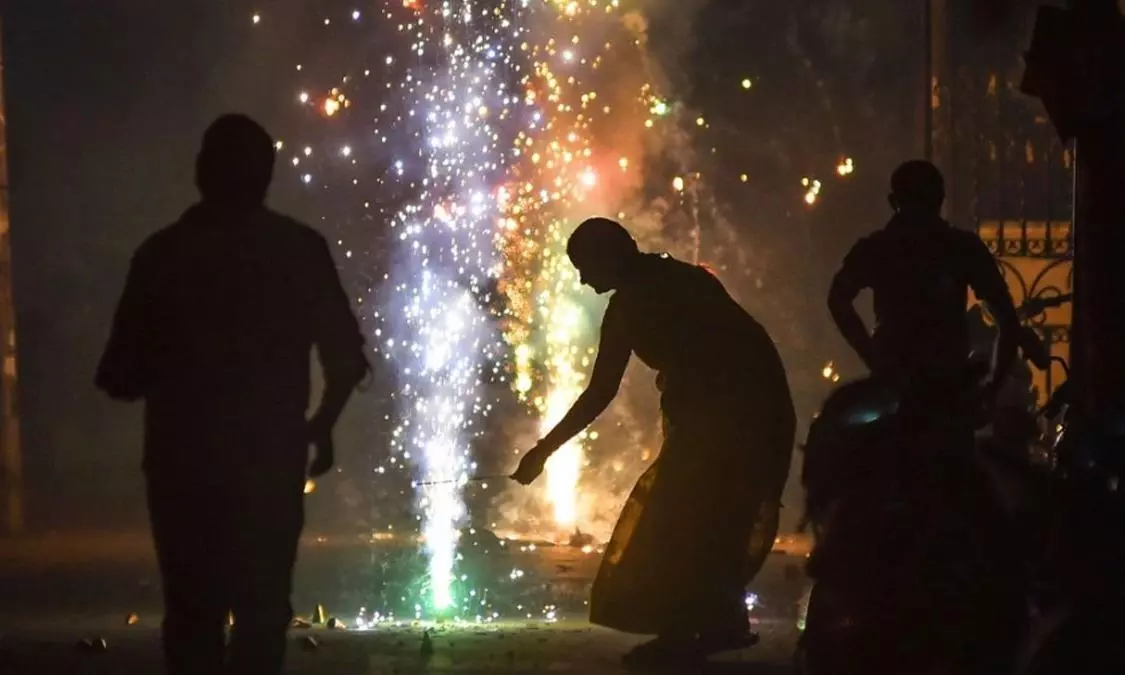Tales of Diwali: Hyderabad’s Quieter Celebration vs Delhi’s Electric Rush

Hyderabad: Celebrating Diwali away from home is like missing a cherished friend; you feel the joy of the festival but also the emptiness.
Growing up in Delhi, Diwali wasn’t just about lights and sweets; it was a grand spectacle, even with its pollution and hustle. In Secunderabad, the celebration feels different — a quieter festival woven into individual homes rather than the city-wide celebrations of Ganesh Chaturthi or the vibrancy of Bonalu.
The festive season back home in Delhi starts with Navaratri, flows through Dasara, and takes a short pause before Diwali sweeps in with its five-day charm. First comes Dhanteras, then the day of Diwali, followed by Govardhan and Bhai Dooj. For those in Bihar, Chhath extends the season even further.
It’s a month-long celebration back in Delhi, where every street feels alive, every home open, and every shop brimming with lights, sweets, and laughter.
In the South, traditionally Naraka Chaturdashi — the day before Amavasya — is given more prominence. While in the north, Diwali is celebrated to mark the return of Lord Rama to Ayodhya, in the south, it marks Lord Krishna’s wife Satyabhama’s killing of Narakasura. It is a five-day festival in the north, three days in the south.
Many people I know have made the journey back to Delhi, their hometowns calling. This year, though, I’ve stayed behind. The dip in air quality and health concerns in Delhi, especially with the recent floods, make me hesitate. The idea of a trip only to return exhausted and under the weather feels daunting.
So I find myself finding solace in my work, moving across the city, documenting the small, unfolding scenes of Diwali in Hyderabad. Firecrackers and light stalls appear while sweet shops showcase their colourful hampers. But the bustle feels less intense here — there’s a quietness to the celebration that, while charming, is different from the electric rush of Delhi.
One distinct difference is in the way people shop. The mad dash for Diwali shopping, especially on Dhanteras, is muted. In Delhi, people flock to jewellery stores to buy something new, a tradition said to invite prosperity. House parties are still common, yet the Diwali game nights, with families and friends huddled around for card games, seem less prevalent.
One tradition, however, remains universally the same — cleaning the house and, often, leaving the trash carelessly in the open. It’s an irony; we clear our homes, believing Goddess Lakshmi will bless cleanliness, yet forget about those without homes, like the elderly woman on the street corner who becomes part of the city's overlooked landscape.
In a way, I feel like her — watching from the sidelines, seeing the spirit of Diwali unfold in fragments, like flashes of a familiar memory that’s just out of reach.

